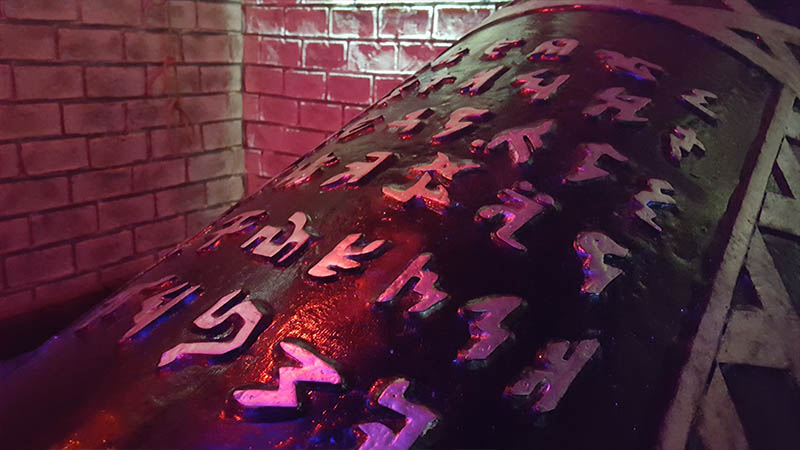Challenges and Storytelling of Escape Rooms
When you’re solving a hard escape quest, the last thing you might be thinking about is the storyline. Who cares what mister D did to lady A, and how was she involved with mister Q? The crucial thing at the moment is the case full of the diamonds stolen by Mister D, and the whereabouts of the treasure. Also, you’d usually want to keep track of the time as it runs faster than when you’re doing chores or working on another project. And that’s understandable: in a hard escape quest, you need to use your brain powers at full, or you will lose the game.
However, when you finally escape the room challenges seem not so important. Instead, you’re looking back to see an adventure in that you manage to become the main hero. You didn’t just find clues, unlock boxes and decipher crypt messages: you were a fighter for justice who successfully protected lady A, discovered the mystery of Mister Q and managed to get that bastard D arrested. In your escape story escape room became the main actor, and you enjoyed the storyline without any live actors involved. Good for you! But when and more importantly, how did the transformation happen? When did time run for a prize become a full-fleshed adventure?

The Storytelling Challenges in Complicated Escape Rooms
There are not so many branched choose-your-own-adventure escape quests. But if there were, they’d most likely rely on the puzzles, instead of the actors. When you have to choose an action, it feels much more effective than when selecting an option among those proposed to you in the conversation. In the first case, you act. In the second, you communicate – and that leaves too much space for nagging, lying, trying to outwit or bribe, etc. People can become quite inventive when they talk to the characters of an escape quest, and the actors have to play along, but they’re still limited in options, and it won’t be so hard to see the barrier after a few tries.
The hardest escape rooms are created in a way so that there’s minimal or none interacting with actors. The creators want to devote as much time to puzzle solving as possible. If the escape quest is not created very well, you’ll see a bunch of random puzzles that stop you from getting the key. But if the authors know what they’re doing, you’ll get lots of original problems created especially for the challenge. They won’t be only new in mechanics: their contents will add layers to the lore and expand it drastically.
Have you ever been to an escape room like that? Or maybe you prefer theatrical performances with an element of puzzle-solving? Tell us in the comments, and to check out Quest Factor main page: you’ll find all our quests in Seattle, Shoreline and Redmond there!

